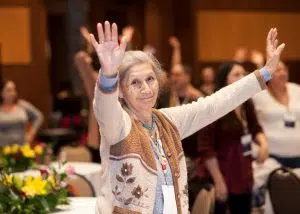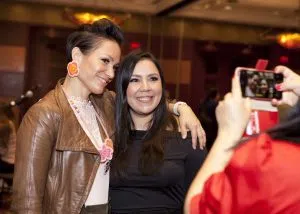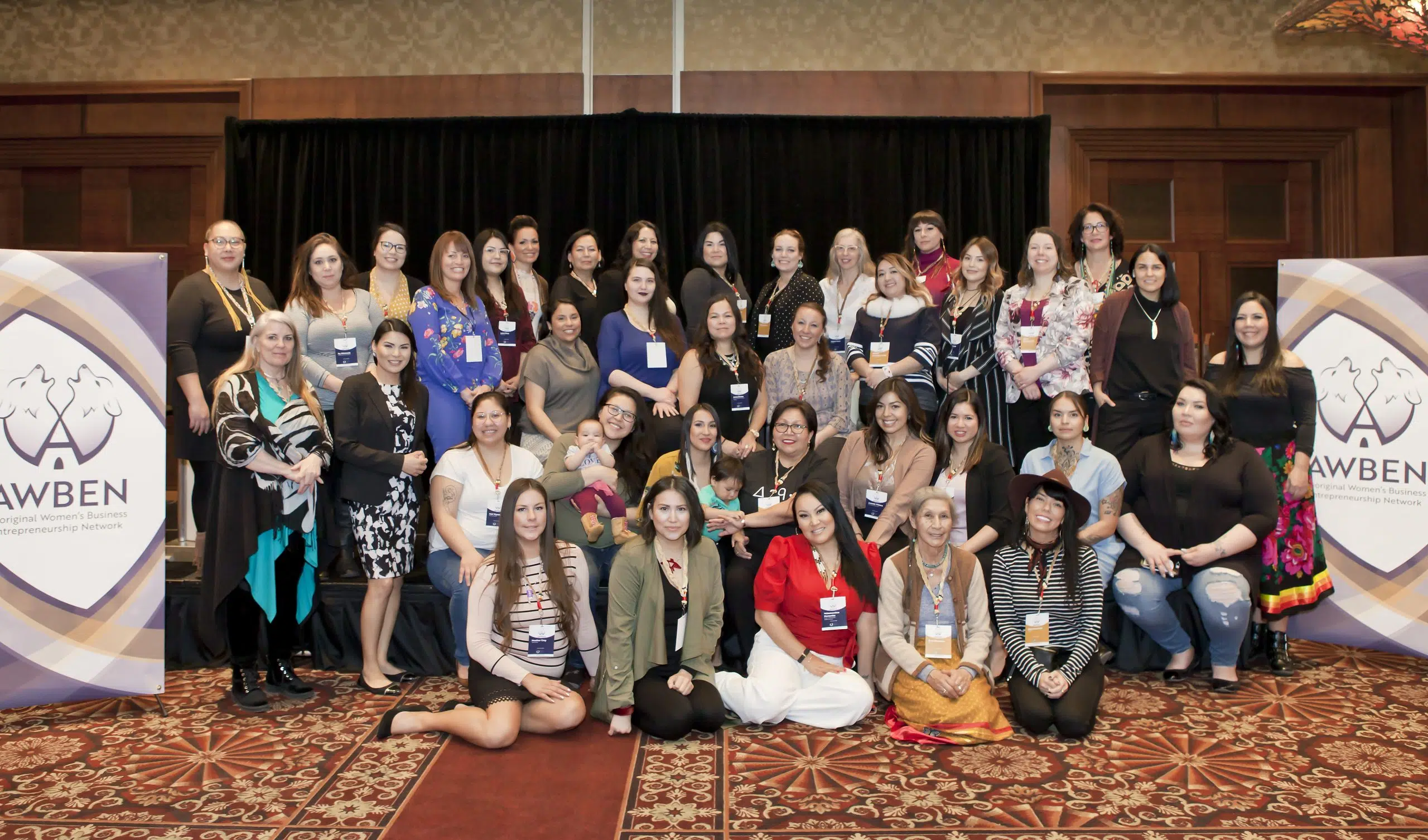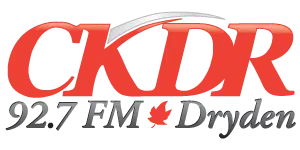From peer-to-peer mentorship to an online business directory, the #BeTheDrum Entrepreneurial Navigation Program provides Indigenous women with the entrepreneurial and management skills to navigate the world of business.
“Our program is free and it’s open to Indigenous women and gender diverse entrepreneurs, as well as those who are considering starting up a business,” says Hazel Harrison, one of #BeTheDrum’s team Mentors and Entrepreneur Navigators.
According to the Canadian Women’s Foundation, Indigenous women, working full-time, full-year, earn an average of 35 per cent less than non-Indigenous men — where Indigenous Women are earning 65 cents to the dollar.
Participation feedback from eight years of business conferences and events hosted by the Native Women’s Association of Canada (NWAC) reflected a need for year-round business navigation, mentorship and peer working groups.
#BeTheDrum launched at the end of February and pivoted online due to the COVID-19 pandemic.
The program focuses on business navigation, workshops, peer-to-peer networks and social media connections, while mentors work one-on-one with applicants to answer questions, offer guidance and help them understand business.

2019 Aboriginal Women’s Business Entrepreneurship Network attendee
“You can’t be it if you can’t see it,” says, Frances Schagen, who also serves as a #BeTheDrum Mentor and Entrepreneur Navigator. The mentors/navigators are fellow Indigenous businesswomen who can offer their unique learning experiences and support while helping foster individual and community growth.
According to Harrison, there are 44 entrepreneurs taking part in the program as of August, representing Indigenous women’s businesses in tourism, natural health products, farming, property rentals and mobile apps.
#BeTheDrum has also created the Indigenous Women’s Business Directory, a database established women-owned businesses that applicants can draw upon and reference. Harrison says the program’s goal is to have 350 women with fully established and operating businesses on the directory within a year.
Potential applicants can sign up for the program by filling out an application and book a Mentor on #BeTheDrum’s website.
The team works one-on-one with applicants to help them understand business and work with them through each phrase of the business cycle. They help with brainstorming ideas, business planning, business registration, creating pitch decks, applying for funding, developing marketing strategies, creating social media profiles, marketing material and more.
“Another thing that we’re trying to do is bring our entrepreneurs together as often as we can because that way the entrepreneurs talk to each other. The more we talk to each other, the better off we can be,” says Shagen. “Every big move I’ve made in my life in business has been because I’ve been part of a group,” she adds.

2019 Aboriginal Women’s Business Entrepreneurship Network attendees
Through becoming entrepreneurs, Indigenous women can build their business around their lives and their families’ lives.
“I have that experience of being able to design and build a business around the needs of your family,” says Shagen. “You have control over your economic life. I think that’s really important for women that we make our own money and that we get to control that money ourselves.”
Harrison adds many women would love to further their education to advance in their careers and earn more money, but they literally don’t have the time or energy to pursue their educational goals. In her case, she waited until her children were older before taking on university studies.
The go-getter entrepreneurs #BeTheDrum works with are making the best of these uncertain times and doing what they need to do to make their business a success. #BeTheDrum also helps Indigenous women entrepreneurs to expand the definition of success, beyond the consensus of profit equaling success.
“For most women, and Indigenous women, success is helping our community,” she says. “A lot of times women are starting businesses not just to start a business, but also to employ the people around them or to bring services to their community that aren’t there.”
The program teaches there are many ways Indigenous women entrepreneurs can structure and run a business while creating their own measuring stick of success.
“Anybody can do business,” Shagen says. “If it feels like it’s hard, it may be because you’re trying to do business in a way that you don’t need to do it that way.”





